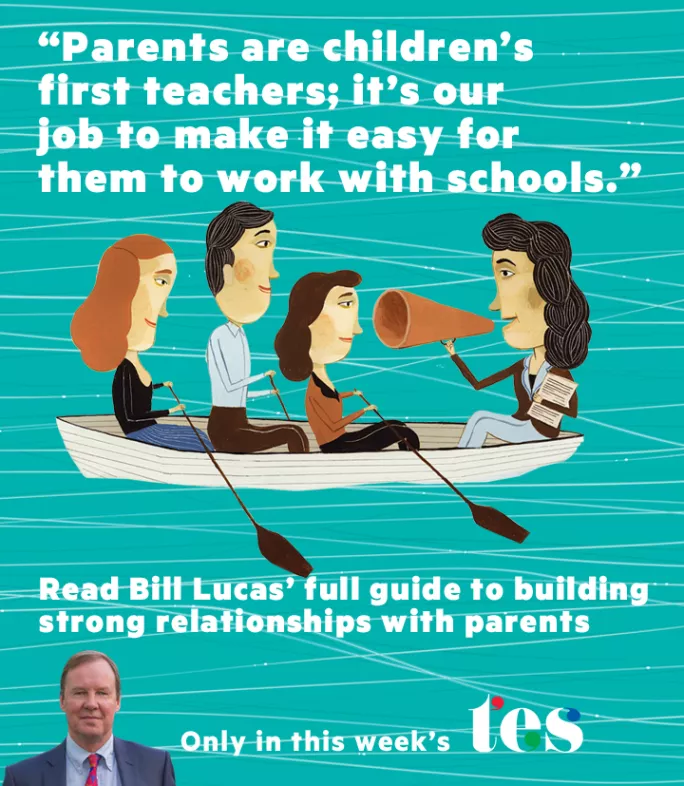Most teachers will tell you that parents are very important and that their school does whatever it can to involve them. In reality, however, a significant number of teachers see parents as a distraction. Now they’re out of the way, these teachers say, we can get on with the real job of educating pupils.
It need not be like this. Research into the benefits of parental engagement in schools makes a powerful case for closer involvement. American academics Anne Henderson and Karen Mapp sum it up well: “The evidence is consistent, positive and convincing: families have a major influence on children’s achievement. When schools, families and community groups work together to support learning, children tend to do better at school, stay in school longer and like school more.”
The effect of parental engagement is large in comparison with other factors influencing student achievement - and the impact is greatest when children are youngest. Real parental engagement is a significant way to close the achievement gap between disadvantaged children and their more affluent peers; and the younger the child, the greater the influence of home relative to school.
The challenge for all schools is to find appropriate ways of connecting with children’s home lives and then commending, nudging or supporting parents into doing things that are likely to be helpful - all the while remaining respectful of the very different parenting cultures and styles that exist today.
In my article in the 25 September issue of TES, I detail fully how this can be done. But for this article, I set out my top 10 things schools do that are are unhelpful when it comes to parents.
- Having reception areas that are unwelcoming and without comfortable seating.
- Keeping parents in the dark about what their child will be learning in the week ahead.
- Making it hard to arrange an appointment to see a teacher.
- Not answering emails and voicemails promptly.
- Class teachers offering a child-sized seat to a parent during a meeting but taking an adult one themselves.
- Giving children impossible homework or deadlines and leaving parents to cope.
- Using edu-babble and jargon.
- Organising the PTA so that all it really does is fundraising.
- Failing to offer parents genuine opportunities to make constructive suggestions.
- Not acknowledging constructive feedback.
Professor Bill Lucas is co-author, with Guy Claxton, of Educating Ruby: what our children really need to learn. He is director of the Centre for Real-World Learning at the University of Winchester
To read more from Bill Lucas, look out for this week’s edition of TES on your tablet or phone, or by downloading the TES Reader app for Android or iOS. Or pick it up at all good newsagents.






